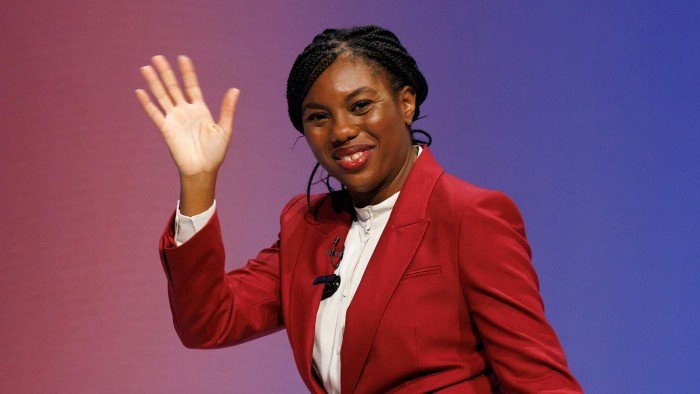Tory leader Kemi Badenoch has stated she knows Nigeria “very well” and had an interest in what happens there.
“I’m Nigerian through ancestry, by birth despite not being born there because of my parents, but by identity I’m not really. I know the country very well, I have a lot of family there, and I’m very interested in what happens there.” She said.
The Tory leader, who grew up in Lagos and is of Yoruba heritage, however said that she had not had a Nigerian passport for two decades.
Speaking on the Rosebud podcast, she said: “I have not renewed my Nigerian passport, I think, not since the early 2000s.
“I don’t identify with it any more, most of my life has been in the UK and I’ve just never felt the need to.”
“Home is where my now family is, and my now family is my children, it’s my husband and my brother and his children, in-laws. The Conservative Party is very much part of my family, my extended family, I call it.”
Badenoch’s Earlier Visit to Nigeria
When her father, Femi Adegoke, who was a doctor, died in 2022, Mrs Badenoch said she had to get a visa to travel back to Nigeria, which she described as a “big fandango”.
The Tory leader was born in a private hospital in Wimbledon, South West London, in 1980 before her parents took her home to Nigeria.
She was one of the last people to receive birthright citizenship rules in Britain, before they were abolished by Margaret Thatcher the following year.
Mrs Badenoch said that she felt both British and Nigerian while growing up in Lagos.
“Finding out that I did have that British citizenship was a marvel to so many of my contemporaries, so many of my peers,” she said.
“I think the reason that I came back here was actually a very sad one, and it was that my parents thought, ‘there is no future for you in this country’.”
‘Never felt I belonged there’
She added that she remembered “never quite feeling that I belonged there” in Nigeria.
The Tory leader has previously come under fire from politicians in Lagos over comments made about the country.
She has repeatedly talked about growing up in a country affected by corruption and governed by military dictatorship, and Lagos as a city where “fear was everywhere”.
The Tory leader came to the UK aged 16 to study, and told the podcast she had not experienced racial prejudice in Britain “in any meaningful form”.
“I knew I was going to a place where I would look different to everybody, and I didn’t think that that was odd,” she said.
“What I found actually quite interesting was that people didn’t treat me differently, and it’s why I’m so quick to defend the UK whenever there are accusations of racism.
“I did not experience prejudice in any meaningful form. That doesn’t mean prejudice doesn’t exist, that it doesn’t happen, many people do. But I didn’t, not seriously.” she said.

